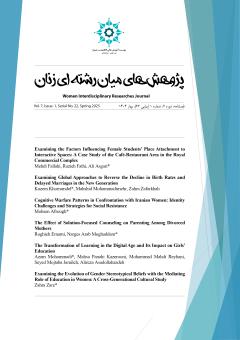-
-
-
Open Access Article
1 - The Role of Self-efficacy and Emotional Intelligence in Predicting Marital Conflict Resolution among Mashhad University Students
Masood Salehi Mohammad Javad Asghari Ebrahim Abad -
Open Access Article
2 - The Relationship between of Academic Burnout and Academic Conflict with the Mediating Role of Academic Resilience
sekineh Geraeeli Abolghasem Barimani behrang esmaeilishad -
Open Access Article
3 - Estimation of conflict between couples and solutions based on the secondary analysis of national family survey data in Iran
Akbari younes Mohammad Torkashvand -
Open Access Article
4 - The prediction of marital conflicts based on marital quality of life and communication patterns during quarantine of coronavirus outbreak (Covid-19)
Mohammad Vahidi Kooresh Zare Shibani -
Open Access Article
5 - The Sociological Examination of Violent Interactions Between Women and Men in Family Relationships
Shaho Rastegari Asadallah Babaeifard
List of Articles conflict
-
The rights to this website are owned by the Raimag Press Management System.
Copyright © 2017-2025


